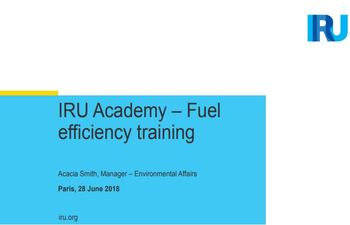Key issues in LCA methodology for marine fuels
Publication Year: 2023
Author(s): Carvalho F, O'Malley J, Osipova L, Pavlenko N
Abstract:
The results illustrate the importance of understanding the reason for the life-cycle carbon accounting of fuels. For one, fuels that have zero tank-to-wake or direct emissions can have substantial upstream production emissions that are not counted when assessing only tank-to-wake emissions. Additionally, while indirect effects are uncertain and difficult to estimate, they might be large enough to greatly affect the estimated GHG savings of some fuel pathways, and assuming a value of zero on the basis of uncertainty is not necessarily a neutral decision. To avoid the adoption of high-emitting fuels in an effort to decarbonize maritime transportation, the IMO can adopt full life-cycle well-to-wake GHG accounting for policies related to fuel operational use such as the Carbon Intensity Indicator and potential future policies like the GHG Fuel Standard. Such accounting would be consistent with other major fuels policies that assess the indirect emissions attributable to fuels.
Publisher/Organisation: International Council on Clean Transportation
Rights: International Council on Clean Transportation
URL:
https://theicct.org/wp-content/uploads/2023/04/Marine-fuels-LCA_final.pdf
Theme: Sustainable transportation | Subtheme: Environment Impact
Related Documents
Opinions/Videos
NDC Transport Initiative for Asia (NDC-TIA)
Published Year: 2020
Abstract:
The virtual kick-off event of the Nationally Determined Contributions (NDC)- Transport Initiat... Read More
Case Study
Impact of Vehicle Emissions on Air Quality in Mexico
Published Year: 2017
Abstract:
This presentation by Kate Blumberg outlines the health assessment of the on-road sector f... Read More
Opinions/Videos

IRU Academy – Fuel efficiency training
Published Year: 2018
Abstract:
This Presentation by Acacia Smith, Manager – Environmental Affairs, IRU (Inter... Read More



